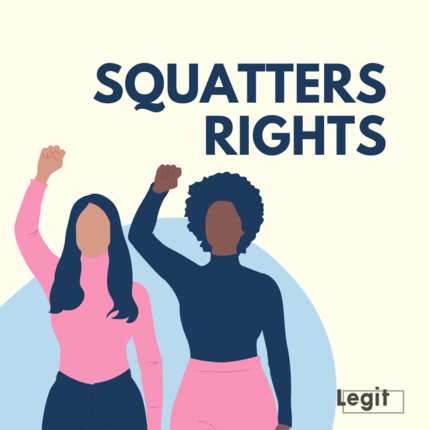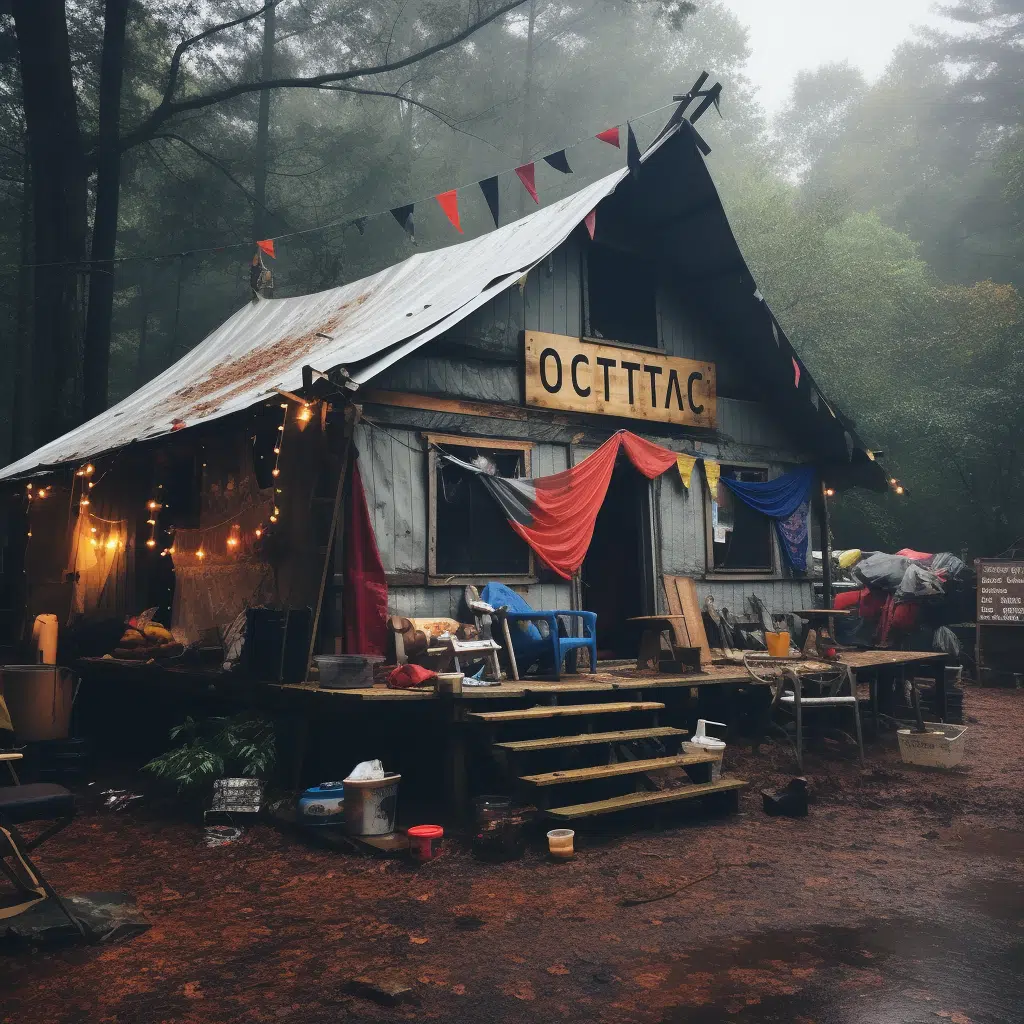Imagine you discover an abandoned house, nestled amongst the rolling hills of Ohio. It’s dilapidated and overgrown, but you see potential. You start fixing it up, investing your time and money. After a while, you start to believe it’s your house. You’ve transformed a forgotten space into a place you call home. Would you have a legal claim to the property? This is the complex question at the heart of squatters’ rights, a legal concept with a fascinating history and a tangle of legal nuances.

Image: www.legit.ng
Ohio law, like most states, doesn’t directly recognize “squatters’ rights” in the traditional sense. The legal term is actually “adverse possession,” and it’s a much more intricate process than simply occupying a property for a certain amount of time. Adverse possession is a legal doctrine that allows a person to acquire ownership of real property by occupying it openly, continuously, and exclusively for a specific period. Understanding the nuances of this legal concept is critical for anyone who might be considering pursuing adverse possession, or who might be concerned about someone else trying to claim their property through this route.
The History of Squatters’ Rights
The concept of adverse possession finds its roots in English common law, dating back to the medieval era. During a time when land ownership was closely tied to feudal obligations, the law recognized the importance of open possession as evidence of a person’s claim to land. If someone openly and continuously occupied a piece of land for a long period, it was often presumed they had a right to it. This concept made its way to the United States colonies and was eventually incorporated into many state legal systems.
Ohio’s Adverse Possession Requirements
Ohio’s adverse possession law, codified in the Ohio Revised Code, is quite specific. To successfully claim ownership through adverse possession, an individual must meet the following criteria:
- Open and Notorious Possession: The possession of the property must be visible and obvious to the true owner and anyone else who might observe the property. This means the squatter cannot be hiding their occupation from the true owner.
- Exclusive Possession: The squatter must be the only one in possession of the property. They cannot share the property with the true owner or anyone else.
- Continuous Possession: The possession must be uninterrupted for a period of 21 years. This requires consistent, uninterrupted occupation, even if the squatter only lives on the property seasonally.
- Hostile Possession: This is the most complex element. It does not necessarily mean violence or hostility towards the true owner. It simply means the squatter occupies the property without the owner’s permission and with the intent to claim ownership.
- Payment of Taxes: The squatter must prove that they paid all taxes on the property for the entire 21-year period. This can be a crucial aspect of proving hostile possession, as it demonstrates an intent to claim ownership.
The Importance of Intent
The requirement for hostile possession presents a significant hurdle for would-be adverse possessors. In Ohio, the courts have clarified that hostility is not determined by the squatter’s mental state, but rather by their actions and outward behavior. The question becomes: are their actions clear enough to demonstrate a conscious intent to claim title, even if the true owner is unaware?

Image: www.mortgagerater.com
Real-World Examples of Adverse Possession
Adverse possession claims are litigated in courts every year across the United States. Here are some real-world examples of situations where someone might attempt to claim ownership through adverse possession:
- Fences and Property Lines: A common scenario involves a fence that has been erected incorrectly for decades, leading to a piece of land being mistakenly occupied by the wrong neighbor. If the incorrect occupancy meets the elements of adverse possession, it could lead to a legal claim to that portion of land.
- Abandoned Properties: An abandoned house or building on a piece of land that has been left unattended for decades could be subject to an adverse possession claim if someone starts occupying it and meets the legal requirements.
- Public Land: Although unlikely and legally controversial, adverse possession claims have been attempted on public land, such as forgotten roads or unused portions of parks. However, proving hostility against a government body can be a daunting task.
The Difficulties and Dangers of Adverse Possession
While the idea of acquiring property for free seems appealing, it’s important to understand the challenges and potential pitfalls of pursuing adverse possession in Ohio:
- Legal Complexity: Meeting all of the requirements for adverse possession is a complex and meticulous process. A single missed tax payment or a brief interruption of possession could derail the claim.
- Proof of Possession: The squatter must assemble compelling evidence to prove every element of the claim. This evidence could include things like tax receipts, witness statements, photographs, and even documentation of repairs and improvements made to the property.
- Potential Litigation: The true owner will likely contest the adverse possession claim, leading to costly and time-consuming litigation. The squatter must be prepared to defend their claim in court, which could involve hiring attorneys and going through a lengthy judicial process.
Avoiding Adverse Possession Claims
Property owners can take proactive steps to prevent someone from claiming their land through adverse possession:
- Regularly Check Property: Frequent inspections ensure you are aware of any unauthorized occupation or activity on your property.
- Maintain Clear Boundaries: Well-maintained fences and clear property lines can help deter would-be squatters.
- Legal Action: If you discover an unauthorized occupant on your land, promptly take legal action to remove them.
- Public Records Search: Regularly check public records for any potential claims or liens on your property.
The Future of Squatters’ Rights
Adverse possession is a legal doctrine that sparks ongoing debate. Some argue that it allows for fair and efficient transfer of land ownership, particularly in cases of abandoned or neglected properties. Others criticize the doctrine as allowing squatters to seize legally owned land. The future of adverse possession is uncertain, likely to be shaped by evolving legal interpretations, property rights concerns, and public policy considerations.
Squatters Rights Ohio
Final Thoughts
Understanding adverse possession is crucial in Ohio, whether you’re a property owner concerned about unauthorized occupancy or someone considering pursuing a claim. It’s a complex legal concept that requires careful consideration of all applicable laws and requirements. If you are considering pursuing adverse possession, or if you believe someone is attempting to claim your property through this route, seeking legal advice from an experienced real estate attorney is highly recommended.





